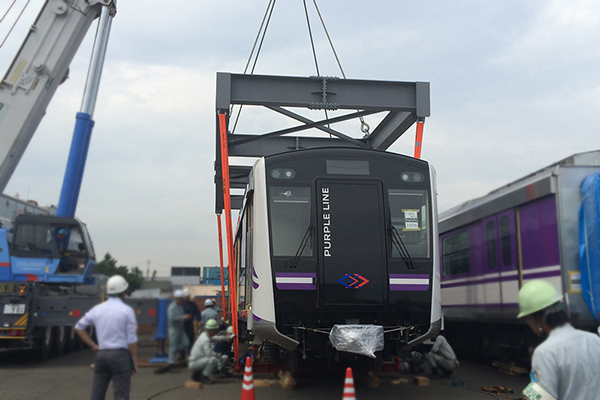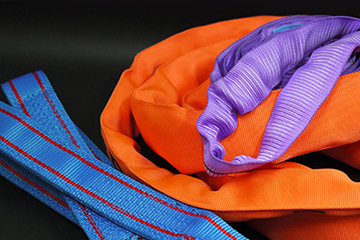

The Heart of the Industrial Site, the Web Sling: A Complete Guide to Safety and Efficiency
In any industrial setting where lifting and moving heavy loads are essential, "safety" is the most critical value that cannot be compromised. How can one move delicate and heavy cargo without damage while ensuring the complete safety of the workers? The answer lies in the Web Sling. Manufactured with advanced polyester webbing, the web sling is both strong and lightweight, making it one of the most trusted lifting solutions in modern industry. This article will detail why web slings are indispensable and how to select the perfect product for your specific needs.
What is a Web Sling, and Why Use Polyester?
A web sling is a strap-like lifting device made from multiple layers of high-strength polyester webbing. Compared to traditional wire ropes or chain slings, web slings offer distinct advantages:
Precise Control and Cargo Protection
The most significant characteristic of polyester is its low stretch. This means the sling barely elongates under load, enabling precise positioning when handling expensive equipment or delicate materials. Furthermore, its soft texture prevents scratches and damage to the cargo's surface, protecting your assets in pristine condition.
Exceptional Strength and Durability
Polyester webbing, woven with advanced technology, boasts a tensile strength comparable to steel but at a fraction of the weight. This allows workers to install and dismantle the sling more easily and safely, maximizing operational efficiency.
Excellent Chemical and Weather Resistance
Polyester is resistant to most acids and chemicals and absorbs very little moisture, allowing it to be used safely without performance degradation in maritime operations or humid environments.
How to Choose the Best Web Sling for Your Job Site
To fully leverage the performance of a web sling, it is crucial to select a product that matches the working environment and load characteristics. The following three key factors must be considered.
-
Type of Sling: Eye to Eye vs. Endless
- Eye to Eye Sling: This is the most common type, with a loop (eye) at each end. It can be used with various hooks and fittings for a wide range of lifting applications.
- Endless Sling: This is a continuous loop without ends. Its main advantage is that the contact points can be rotated, which reduces wear on specific areas and extends the sling's service life.
-
Number of Plies (Layers): The Key to Determining Load Capacity
Web slings are manufactured in various thicknesses, from one to four plies, depending on the intended use and required load capacity. More plies mean a higher weight can be lifted, so you must accurately determine the weight of your cargo and choose the appropriate specification.
-
Safety Factor: The Ultimate Safety Net
The Safety Factor is the ratio of the sling's breaking strength to its rated working load limit (WLL). For example, a 7:1 Safety Factor means the sling is designed to withstand seven times its rated lifting capacity. This is a critical indicator that ensures safety even in the event of unpredictable impacts or sudden incidents. You must select a product with the appropriate safety factor (e.g., 7:1, 6:1, or 5:1) according to regulations and the requirements of your work environment.
Key Applications of Web Slings
Thanks to their flexibility and stability, web slings play a vital role in various industries:
- Shipbuilding and Marine Plants: Transporting precision parts and equipment.
- Construction Sites: Safely hoisting building materials, steel structures, etc.
- Heavy Equipment Transport: Loading, unloading, and securing large machinery.
- Logistics and Warehousing: Moving containers and heavy cargo.
As such, a web sling is more than just a lifting tool; it is an essential partner that builds a safe working environment, protects our customers' valuable assets, and ultimately enhances worker efficiency.
A successful lifting operation begins with choosing the right equipment. The web sling is an innovative solution that delivers on three fronts: lightweight design, powerful performance, and superior cargo protection. By carefully considering the type, number of plies, and safety factor that best suit your operational needs, you can elevate the safety and productivity of your worksite.

 ENGLISH
ENGLISH


